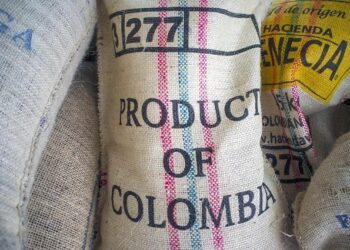TĂĽrkiye continues to play a critical role in providing humanitarian aid to Gaza amid a deepening crisis, sustaining vital lifelines through the coordinated efforts of non-governmental organizations (NGOs). As the enclave faces severe shortages of food and essential supplies due to ongoing blockades and conflict, Turkish NGOs have intensified their relief operations, delivering much-needed support to starving civilians. This persistent humanitarian engagement underscores TĂĽrkiye’s commitment to alleviating suffering in Gaza while navigating complex geopolitical challenges.
TĂĽrkiye’s NGOs Deliver Critical Humanitarian Aid to Alleviate Gaza’s Food Crisis
Turkish NGOs have intensified their efforts to combat the escalating food scarcity in Gaza, delivering essential supplies that reach thousands of vulnerable families daily. Collaborating closely with international partners, these organizations have mobilized food packages, including staple grains, fresh produce, and fortified nutrition kits tailored to the needs of children and the elderly. Their logistical operations overcome severe infrastructural challenges, ensuring that aid arrives in the most conflict-affected areas where shortages are most critical.
Key initiatives currently underway focus on expanding distribution networks and introducing sustainable relief models to reduce long-term dependency. The following table highlights recent aid contributions from leading Turkish NGOs over the past quarter:
| NGO | Food Packages Delivered | Population Served | Areas Covered |
|---|---|---|---|
| Ä°HH Humanitarian Relief Foundation | 15,000+ | 60,000 | Gaza City, Khan Younis |
| AFAD (Disaster & Emergency Management) | 10,500 | 45,000 | Rafah, Deir al-Balah |
| Turkish Red Crescent | 12,000 | 50,000 | Central Gaza, Jabalia |
- Emergency food relief: Prioritizing families with young children and elderly members.
- Nutrition awareness campaigns: Educating recipients on maximizing available food resources.
- Local partnership building: Collaborating with Gaza-based aid groups to extend reach.
Challenges Faced by Turkish Aid Organizations Operating Amid Gaza’s Blockade
Access restrictions imposed by the ongoing blockade severely limit the ability of Turkish aid organizations to deliver essential supplies and medical aid. Convoys frequently face prolonged delays or outright denial at border crossings, complicating logistics and risking the spoilage of perishable goods. Additionally, the volatile security environment means organizations must navigate complex coordination with multiple authorities, often resulting in disrupted schedules and increased operational costs.
The humanitarian teams encounter a multitude of obstacles on the ground, including:
- Limited entry points leading to bottlenecks
- Insufficient communication infrastructure within Gaza
- Scarcity of safe zones for aid distribution
- Heightened risk to personnel due to ongoing hostilities
| Challenge | Impact | Response |
|---|---|---|
| Border Closures | Delays, shortages | Negotiations for humanitarian corridors |
| Security Risks | Threats to staff safety | Strict security protocols and local partnerships |
| Infrastructure Damage | Hindered distribution | Utilizing local networks and alternative routes |
Enhancing Coordination and Support for Sustainable Relief Efforts in Gaza
Strategic partnerships between Turkish NGOs and local organizations in Gaza have been crucial in orchestrating a more efficient distribution of aid. These collaborations focus on maximizing resource utilization while ensuring that help reaches the most vulnerable populations swiftly. By deploying coordinated logistics networks and leveraging community-based channels, relief efforts have become more targeted, minimizing overlaps and gaps in assistance delivery. Such a harmonized approach not only boosts operational effectiveness but also fosters trust and resilience within affected communities.
Key elements of this enhanced coordination include:
- Centralized communication hubs to streamline information sharing among NGOs and local partners.
- Regular needs assessments to adapt relief strategies based on evolving conditions on the ground.
- Capacity building initiatives that empower local actors to sustain efforts independently over the long term.
- Transparent monitoring mechanisms to ensure accountability and optimize resource allocation.
| Coordination Aspect | Impact | Example |
|---|---|---|
| Communication Hubs | Faster decision-making | Joint NGO task forces |
| Needs Assessments | Focused resource deployment | Monthly community surveys |
| Capacity Building | Sustainable local impact | Training workshops |
| Transparent Monitoring | Enhanced accountability | Public progress reports |
So the full table would be:
| Coordination Aspect | Impact | Example |
|---|---|---|
| Communication Hubs | Faster decision-making | Joint NGO task forces |
| Needs Assessments | Focused resource deployment | Monthly community surveys |
| Capacity Building | Sustainable local impact | Training workshops |
| Transparent Monitoring | Enhanced accountability | Public progress reports |
If you need me to assist with anything else in the content, just
Future Outlook
As humanitarian needs in Gaza continue to escalate amid ongoing conflict and blockade, TĂĽrkiye’s steadfast support through non-governmental organizations remains a critical lifeline for countless vulnerable civilians. By facilitating the delivery of essential aid, Turkish NGOs play an indispensable role in mitigating the region’s dire food insecurity. While challenges persist, TĂĽrkiye’s commitment underscores the importance of sustained international cooperation to alleviate suffering and uphold humanitarian principles in one of the world’s most fragile hotspots.
















